“The world is full of magical things, patiently waiting for our senses to grow sharper.”
— W.B. Yeats
Beyond Coffee: Discovering a Hidden Gem in Sultan Kudarat
Sen. Ninoy Aquino (formerly Kulaman) in Sultan Kudarat is known for being the coffee capital of the Philippines, but beyond its plantations lies another world—Lagbasan Cave, a hidden natural wonder that remains one of the most pristine and awe-inspiring cave systems in the country.
Declared “world-class” by Glen Malliet of the United States Speleological Society and host to the 3rd Mindanao Caving Forum in 2008, this cave system is only partially explored. And last week, I joined a group of eco-tourism advocates, along with DTI and DOT Sultan Kudarat, to experience it firsthand.
The Journey to Lagbasan Cave
Brgy. Kuden, where the cave is located, is roughly 20 kilometers of rugged mountain roads away from the municipal center. The final hour-long trek through lush forest is led by none other than Mr. Charito Santiago, the original discoverer of the cave, and the Brgy. Captain of Kuden himself.
“Lagbasan,” meaning mountain pass, was historically used by indigenous communities to travel to town. After a farmer noticed birds flying into a mountainside hole, Mr. Santiago investigated—and discovered a limestone chamber the size of a gymnasium.
A Gateway into Silence and Stone
The cave entrance is narrow—just 3×6 feet—requiring you to crawl single file for about 10 meters before it opens into the vast main chamber. But what awaits inside is nothing short of breathtaking.
Lagbasan Cave contains two massive cathedral-like chambers, one approximately 300 meters and the other 500 meters in length, adorned with stunning speleothems:
- Glistening stalactites and stalagmites (many of which are actively forming)
- Delicate draperies (flowstones) cascading like frozen waterfalls
- Rare crystalline structures that sparkle under lamplight
Not all chambers are open to the public due to ongoing conservation and exploration. Our group split in two to maximize time, with each team heading to a separate chamber. I followed Mr. Santiago and captured every detail I could.
Photography, Awe, and the Responsibility to Preserve
Despite being a self-confessed claustrophobe, I couldn’t resist pausing every few meters to photograph these ancient masterpieces sculpted by water and time. At one point, I even drank from a clear cave pool, a rare chance to taste water filtered by earth itself.The cave formations here are alive—literally. Their vibrant white coloring means they are still forming and should never be touched, as human contact can stop their growth entirely. I was constantly reminded of this by our guides, especially when I wandered too close out of sheer fascination.
Conservation in Action
Unfortunately, not all caves in the region have been respected. Burial jars dating back hundreds of years in nearby caves were looted by antique poachers. As a result, Lagbasan Cave is now under strict conservation protocols.
Thanks to the DENR-12 and the Regional Cave Management Committee, the cave is protected under Republic Act No. 9072, or the National Caves and Cave Resources Management and Protection Act. Its entrance is padlocked with reinforced steel, accessible only through coordination with:
- Mr. Noel Insular (Provincial Tourism Office)
- SNA Municipal Tourism Office
- Mr. Charito Santiago or the local barangay captain
Planning Your Visit to Lagbasan Cave
If you’re planning to explore this marvel, here are a few practical tips:
- Coordinate early with the local tourism offices and guides
- Wear proper gear: headlamps, cave helmets, and trekking shoes are a must
- Respect the rules: never touch anything white or crystalline
- Trek mindfully: the trail is steep and often slippery
Most importantly, enjoy—but don’t exploit. These caves are delicate ecosystems and cultural treasures.
Final Thoughts: The Pull of the Underground
I may not return to Lagbasan Cave anytime soon, but the experience left an imprint. I faced fears, witnessed natural artistry, and reconnected with the quiet reverence only places like this can offer.
So if you’re looking for a therapeutic yet thrilling detour from your usual path, Lagbasan Cave in Sen. Ninoy Aquino is your next mindful adventure.
Filed under: Hiking & Trail Discovery — meaningful treks and immersive nature journeys.




























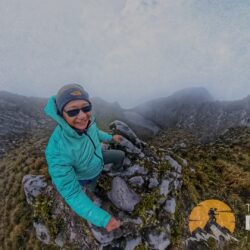
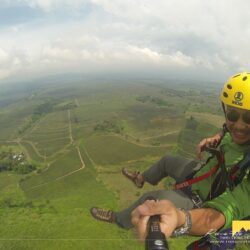
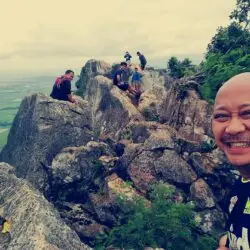
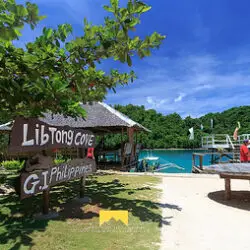
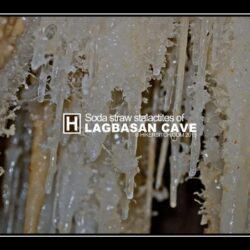





the cave is so awesome. great formations. i first saw it in a DTI publication. been dreaming to be enclosed in here since then.
check it out tupe!
super nice kaayo dok! 🙂 you really had taken your time taking photos! great shots
Yes Kathleen! Its even more nice if you can actually stare at it with your own eyes> I hope my picture could give justice to this one of a kind cave formations..
im planning to visit Gen san sometime at the end of the year. I might visit this place if makaya 🙂 thanks for sharing the photos! they are very beautiful
Wow a wow… may kontak po ba kau for guide?. Wanna see this myself.. thanks